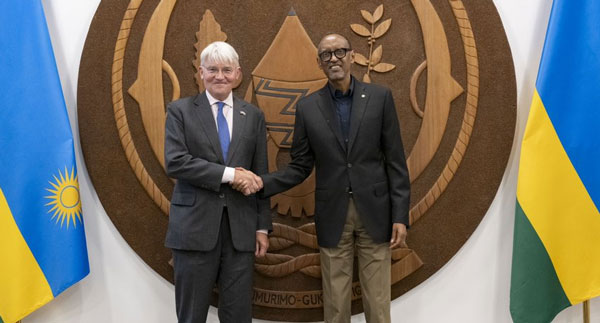
Nairobi, Kenya | THE INDEPENDENT | The inaugural Africa Climate Summit, being hosted by Kenya will unveil new UK-backed projects valued at £49 million. These initiatives are centred on mobilizing financial resources for climate action and assisting communities in mitigating the effects of climate change, addressing two crucial fronts in Africa’s battle against climate change. The funding will not only stimulate job creation and economic growth but also enhance the quality of life for women, farmers, and vulnerable communities.
This commitment aligns with the pledge made by UK Foreign Secretary James Cleverley during his visit to Kenya in December 2022, reaffirming the UK’s dedication to providing honest and dependable investment in Africa. It also underscores the UK’s commitment to the COP26 agreements, underscoring the strength and efficacy of UK-Africa collaborations.
Among these allocations, £34 million will be allocated to new projects spanning fifteen African nations. These projects aim to bolster the resilience of women, vulnerable communities, and more than 400,000 farmers against the impacts of climate change. This effort falls under the established CLARE, CIWA, and WISER programs. Early warning systems, including text alerts, radio broadcasts, and social networks, will empower remote communities to take preemptive action in the face of extreme weather events. Additionally, these projects will enhance water security for over 1.5 million people.
Furthermore, the Summit will witness the launch of seven new climate finance projects. Valued at £15 million and backed by UK-supported FSD Africa Investments, these investments will mobilize private capital. This will enable small-scale businesses to access financing, innovate, and deliver inclusive technological solutions, such as converting deserts into arable land. Collectively, these endeavours will enhance access to essential services like renewable energy and healthcare for over 500,000 individuals, generate 3,400 jobs, and provide affordable, reliable electricity to households.
UK Minister for Development and Africa, Andrew Mitchell, emphasized the growth of partnerships between the UK and African nations in green investment and climate resilience, which contribute to economic development and an improved quality of life. He also highlighted the unfortunate reality that those least responsible for climate change often suffer its most severe consequences.
“The UK remains dedicated to working closely with African partners to combat climate change, enhance resilience, and support those disproportionately affected by its impacts,”
During his visit to Nairobi, Mitchell will reaffirm the UK’s commitment to providing £11.6 billion in international climate finance over five years. He will also call for the swift reform of the international financial system to unlock trillions of dollars for climate change mitigation. Additionally, he will welcome the launch of Weza Power, a partnership between the Government of Burundi and UK-backed company Virunga Power, aimed at expanding energy access to nearly 70% of Burundi’s population.
Furthermore, Minister Mitchell will visit Nairobi Railway City, a city centre regeneration project featuring state-of-the-art green technology and £11.5 billion in UK investment. This initiative is one of six climate investment projects that received accelerated support following COP27. Construction has already commenced, and the groundwork for a second project is underway.
Lastly, Minister Mitchell will unveil details about the third consecutive Climate and Development Ministerial, hosted by the COP28 UAE Presidency and the UK ahead of COP28, with Malawi and Vanuatu serving as co-chairs. The Ministerial, initially launched by the UK ahead of COP26, aims to yield concrete outcomes regarding climate finance access and loss and damage.
 The Independent Uganda: You get the Truth we Pay the Price
The Independent Uganda: You get the Truth we Pay the Price


